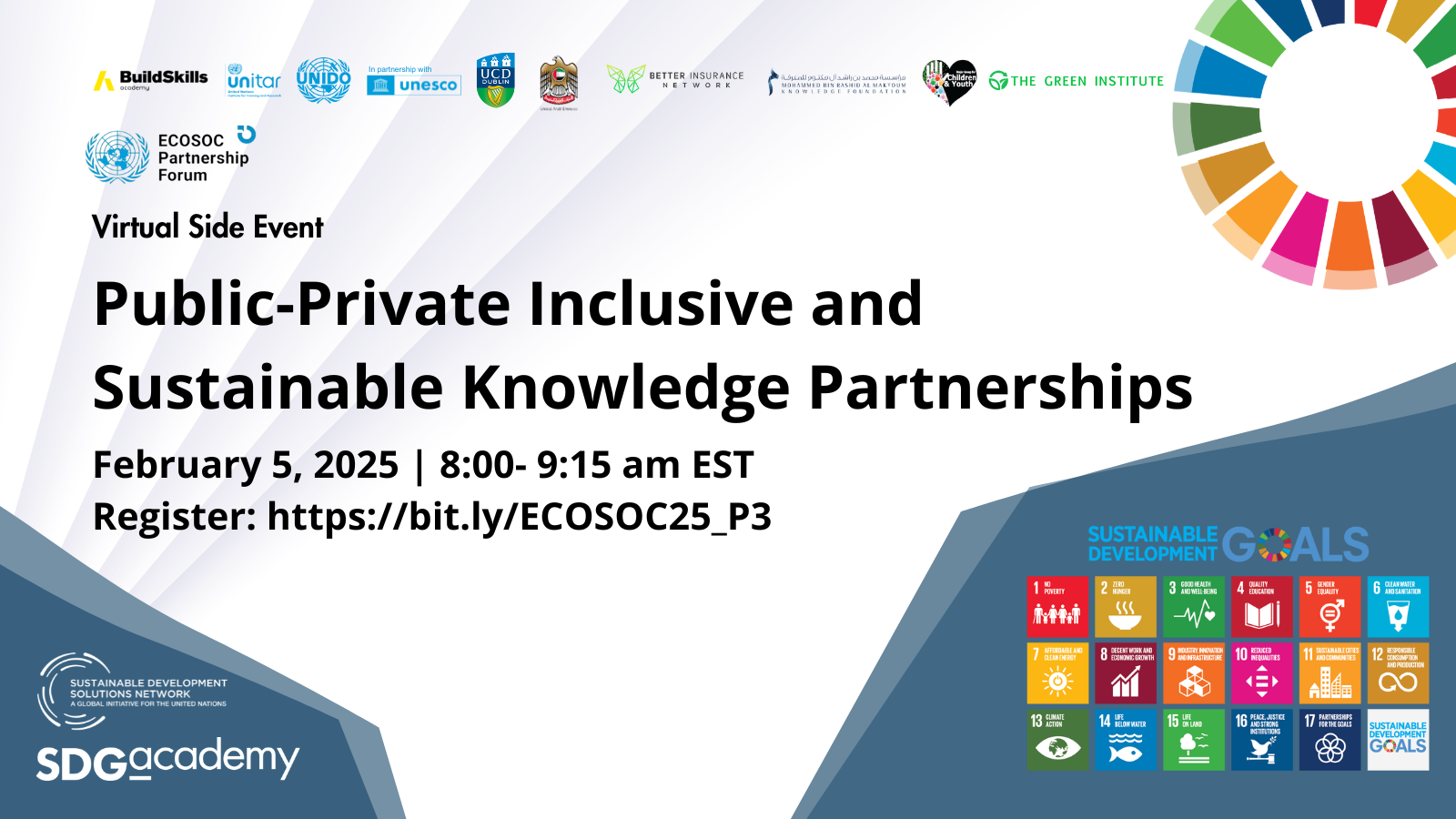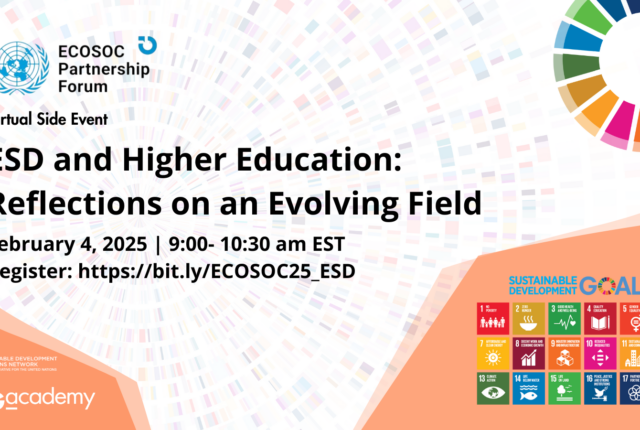
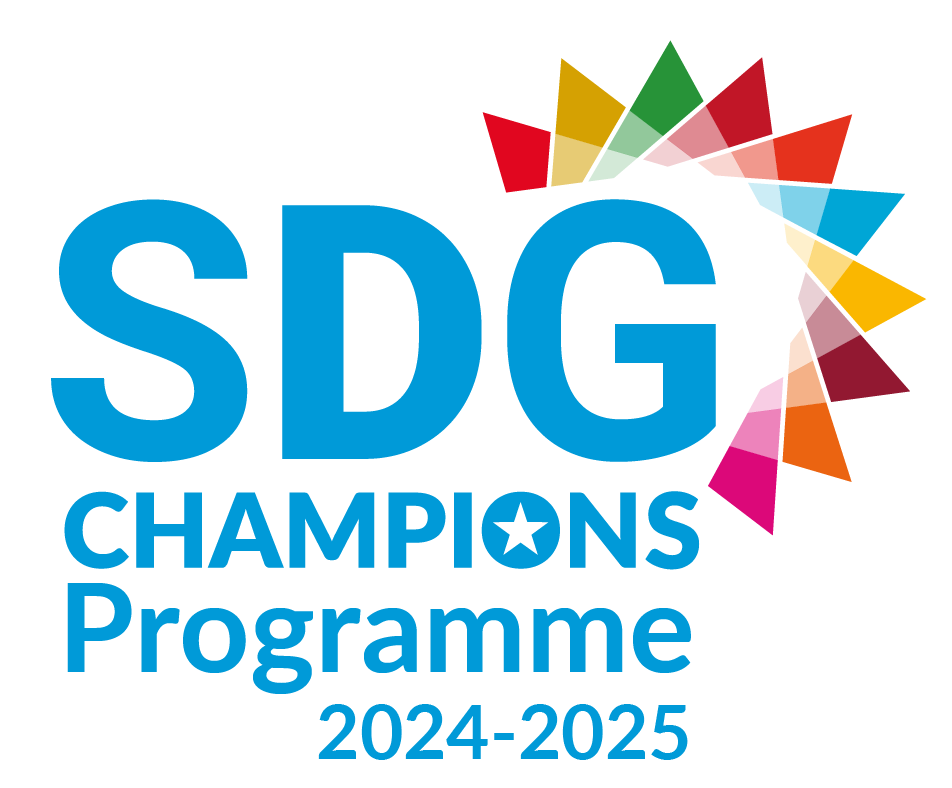
How can we turn SDG knowledge into a global public good? On 5 February 2025, public and private sector partners came together to showcase innovative projects driving an inclusive and sustainable knowledge commons.
The ECOSOC 2025 Partnership Forum side event “Public-Private Inclusive and Sustainable Knowledge Partnerships” highlighted six key projects that are shaping the future of sustainable development:
- Open and equitable access to knowledge: The Dubai Declaration on Open Educational Resources (OER)
- Inclusive global value chains & capacity building for SMEs: Capabilities 4 the Future Hub
- Private sector’s role: Insurance Partnerships and the SDGs
- Upskilling workers for the green and digital transition: BuildSkills Academy
- Higher education for inclusive and sustainable knowledge: SDG Academy Master’s programs
- Transforming attitudes about environmentalism: The Green Pledge by the Green Institute
Open and equitable access to knowledge: The Dubai Declaration on Open Educational Resources (OER)
Zeynep Varoglu, UNESCO, shared more about how the Dubai Declaration on OER, adopted at the 3rd UNESCO World OER Congress in November 2024, supports the implementation of the 2019 UNESCO OER Recommendation – UN’s only instrument dedicated to openly licensed educational content.
As AI and digital technologies reshape the way knowledge is created and shared, open educational resources must evolve to remain accessible, inclusive, and sustainable. The Declaration focuses on five key areas: training educators, shaping policies, ensuring equitable access, creating sustainable OER models, and strengthening international cooperation.
But success depends on strong, cross-sector partnerships. “Partnerships hold everything together—it’s by working as a global community that we can ensure open educational resources move in the right direction,” Varoglu explained.
Achieving the SDGs starts by having and sharing good quality information on how to reach them. No single organization or sector can do it alone. This is why collaboration between governments, educators, researchers, and technology leaders is essential to ensure openly licensed educational content on the SDGs remains truly open, high-quality, and equitable for learners everywhere.
For more details, please refer to Zeynep Varoglu’s presentation below.
Capacity building: Capabilities 4 the Future Hub
Elena Proden, UNITAR, presented the Capabilities 4 the Future Hub, which aims to create a more cohesive and inclusive learning environment for national governments, businesses, workers and communities everywhere to equip them with the skills needed to adapt and compete in today’s evolving global economy.
The Hub will bring together policymakers, industries, and educators to align strategies and share expertise. It is a coordination effort to ensure small businesses and less resourced economies are not left behind due to fragmented regulations or unequal capacities.
As stated by Proden, “policies cannot be designed in silos […] It’s really important to ensure that there is a multilateral coordination when it comes to industrial policies.” A call to action for a joint effort from different stakeholders to join, support and contribute to the Hub.
Have a sneak peek of the Cap4Future Hub in the trailer below.
Private sector’s role: Insurance Partnerships and the SDGs
Successful partnerships for the SDGs also include working with the private sector. In particular, the insurance sector is of the utmost importance as it directly impacts many SDGs, whether as a financial safety net, or supporting economic growth and innovation, impacting regions and communities worldwide towards their goals for the future.
In this regard, Antony Ireland, Better Insurance Network, presented the upcoming MOOC on Insurance and the SDGs, a partnership between Better Insurance Network, SDSN and UNITAR. By combining different ecosystems of partners, the MOOC aims to showcase the impact and role of insurance in achieving the SDGs through case studies and real-world examples.
“What we are trying to do is illustrate the links between insurance and the 2030 agenda, pushing insurance up the agenda as a critical enabler of the SDGs and spark ideas that are going to drive collaboration”, stated Ireland.
This is just the beginning, as Ireland see potential in transforming this course in a tool to establish insurance as a key enabler for the SDGs. For more details, refer to the presentation below.
Upskilling workers for the green and digital transition: BuildSkills Academy
Maria Nakova, Cleantech Bulgaria, presented another critical strategic partnership, the BuildSkills Academy, a European Commission co-sponsored project, which aims to upskill and reskill the construction sector for the green and digital transitions. This sector is facing workforce shortages, while also needing to adapt quickly to new sustainability standards.
The BuildSkills Academy aims to support Vocational Education and Training (VET) programs by assessing their programs and proposing how to enrich it to include critical skills workers need. The digital tool to help VET center update their course curriculums is already up and running. The project also aims to create pan-European certification frameworks that can be used across EU Member States.
For more details, please refer to the presentation below. And follow the BuildSkills Academy on Facebook and LinkedIn for further information.
Higher education for inclusive and sustainable knowledge: SDG Academy Master’s programs
Representing the SDG Academy, Shannon Kobran, introduced how the Academy is working towards knowledge sharing, and upskilling and developing a professional and educated workforce across private and public sectors.
In partnership with two universities, Sunway and University College Dublin, the SDG Academy supports the delivery of online master’s programs focused on sustainable development. The biggest highlight of these programs is their online nature. As Kobran explains, these initiatives are flexible in its nature to support working people to improve and embed sustainability into their careers.
The SDG Academy is always on the lookout for new partnerships with universities worldwide that share the same goal of creating an ecosystem of flexible and inclusive learning. For more details, please refer to the presentation below.
Transforming attitudes about environmentalism: The Green Pledge by the Green Institute
Dr. Adenike Akinsemolu presented the Green Institute, which promotes sustainability through education, advocacy, and research. “The mission of the Green Institute is to be the next generation of sustainability leaders through education, advocacy and innovation”, said Akinsemolu. She introduced the Green Pledge, a global movement encouraging individuals and organizations to adopt simple, impactful eco-friendly habits. Originally an online campaign, it has gained international participation, inspiring communities to take actionable steps toward sustainability.
Akinsemolu emphasized the power of partnerships in expanding sustainability education and outreach. Collaborations with universities and organizations are key to developing programs like a sustainability-focused MOOC and turning local initiatives into a worldwide movement.
For more details, please refer to the presentation below.
—
By fostering these partnerships and initiatives, the event underscored the importance of collective action in advancing sustainable development goals worldwide.
For a more concise summary, please refer to the document below.
Event Details
Organizers: University College Dublin and Government of Ireland SDG Champion
Partners: UN Sustainable Development Solutions Network (SDSN), UAE, Mohammed bin Rashid Al Maktoum Knowledge Foundation (MBRF), UNESCO, UNITAR, UNIDO, UN Major Group for Children and Youth, and BuildSkills Academy
Date: 5 February 2025
Time: 8:00-9:15am ET
On the supply of knowledge, we will discuss the outcome document of the 3rd World OER Congress, the Dubai Declaration on Open Educational Resources (OER) on digital public goods and emerging technologies for equitable and inclusive access to knowledge.
Venue: Zoom
This side event at the 2025 UN ECOSOC Partnership Forum will focus on Public-Private Partnerships that are needed to curate and use SDG knowledge as a Global Public Good.
On the use of knowledge, we will discuss the UNIDO, UNITAR and SDSN’s Capabilities for the Future Hub, a space for government agencies, private sector and educational and training institutions to create the highest joint returns to prosperity, society and environment for those who participate in inclusive and sustainable Global Value Chains.
We will also look at examples related to Insurance and the SDGs, the BuildSkills Academy and degree programs that can contribute to an inclusive and sustainable knowledge commons.
Agenda
Opening
Speakers
- Dubai Declaration on Open Educational Resources (OER) – Zeynep Varoglu, Programme Specialist, UNESCO
- Capabilities 4 the Future Hub in Multilateral Industrial Policy – Elena Proden, Senior Specialist, Strategic Implementation of the 2030 Agenda Unit, UNITAR
- Insurance Partnerships and the SDGs – Antony Ireland, Founder, Better Insurance Network
- Built environment, green and digital skills – Maria Nakova, Project Manager, BuildSkills Academy; Manager of Strategic Development, Cleantech Bulgaria
- Master’s courses for inclusive and sustainable knowledge – Shannon Kobran, Head of Education and Training, SDG Academy, UN Sustainable Development Solutions Network (SDSN)
- Transforming attitudes about environmentalism – Dr. Adenike Akinsemolu, Founder and Director, The Green Institute
Chair: Professor Enda Murphy, School of Architecture, Planning and Environmental Policy, University College Dublin
Q&A & Closing
Speakers:
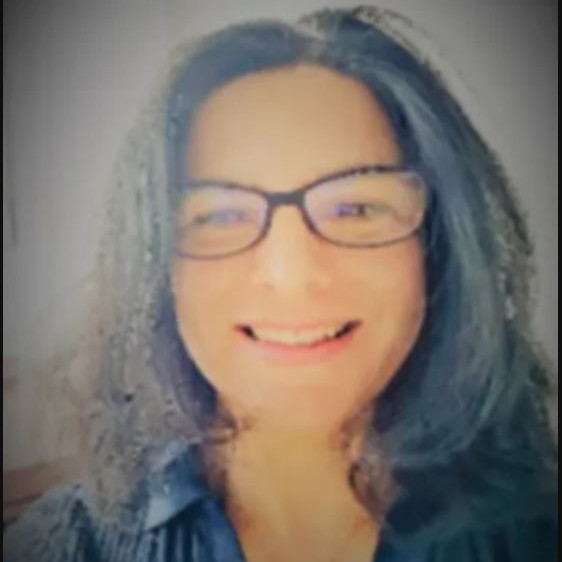
Zeynep Varoglu, Programme Specialist, UNESCO
Zeynep Varoglu is a Programme Specialist in the Digital Innovation and Transformation Section of the Communications and Information Sector at UNESCO Headquarters in Paris. Ms. Varoglu is responsible for the implementation of the UNESCO OER Recommendation and related OER Dynamic Coalition and the UNESCO ICT Competency Framework for Teachers (ICT CFT) as well as initiatives in open, distance, flexible and online education. Ms Varoglu was Co-Responsible Officer for the publication ‘Learning for All: Guidelines for the Inclusion of Learners with Disabilities in Open and Distance Learning’ and the UNESCO Project Officer for the development of the UNESCO/COL Guidelines for Open Educational Resources (OER) in Higher Education. Ms Varoglu holds a Bachelor of Arts (B.A.) from the University of Toronto and a Master of Education (M.Ed) from the Ontario Institute for Studies in Education (O.I.S.E.), University of Toronto.

Elena Proden, Senior Specialist, Strategic Implementation of the 2030 Agenda Unit, UNITAR
Elena Proden is a development economist with more than 15 years of experience working for the UN at country, global and regional levels on capacity building and applied research. She currently works as a Senior Specialist and Team Leader of the Strategic Implementation of the Agenda 2030 Unit at United Nations Institute for Training Research supporting countries on national planning and economic transformations, statistical production and dissemination, M&E, as well as higher education, TVET and academia engagement. She is also coordinating UNSDG:Learn partnership on UNITAR’s behalf to promote better learning opportunities for different stakeholders from policy-makers, statisticians, evaluators to businesses and CSOs.
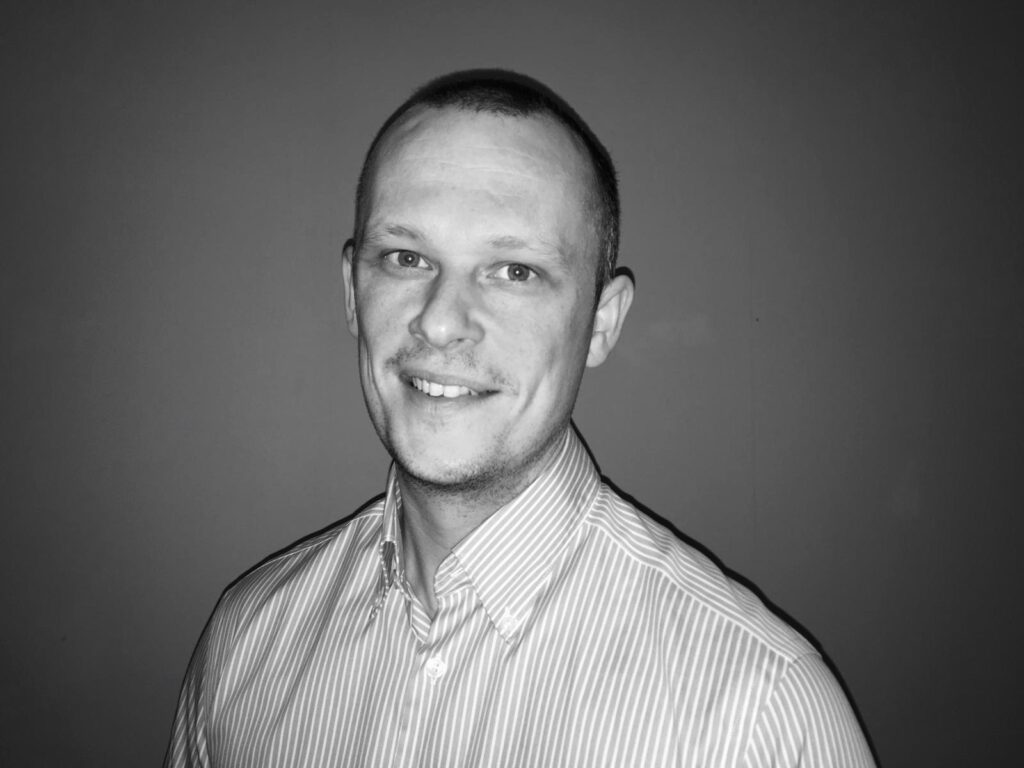
Antony Ireland, Founder, Better Insurance Network
Antony Ireland is the founder of Better Insurance Network, a global community of insurance professionals driving sustainability best practices, implementation and innovation through knowledge-sharing, networking, mentoring and education. Key achievements include the development of Sustainability for Insurers e-learning – the first dedicated online sustainability training tool for insurance professionals, which was created in partnership with 15 organisations and has been adopted by major carriers in the UK, Europe and Bermuda. Prior to launching Better Insurance Network in 2021, Antony covered risk, insurance and asset management for 15 years as a financial journalist, editing numerous trade publications and launching emerging markets titles in Asia, Africa, Latin America, and the Middle East.
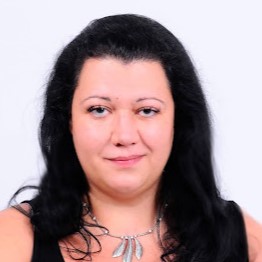
Maria Nakova Project Manager, BuildSkills Academy; Manager of Strategic Development, Cleantech Bulgaria
Mrs. Maria Nakova is Manager Strategic Development in Cleantech Bulgaria and also Head of the European digital innovation hub in construction sector. Maria is Project leader of the BuildSkills Academy Centre of vocational excellence. She has more than 20 years of professional experience in international project management in both public and private sector. She is also policy expert to the Confederation of employers and industrialists in Bulgaria that is the biggest employers‘ organisation in Bulgaria and companies producing three quarters of the total GDP of the country. Ms. Nakova is a leading advisor in field of skills development and business support to innovation adoption and digitalisation.
Ms. Nakova occupied the position of National Communication Office of Bulgaria under Regulation 1303/2014. Ms. Nakova is member of the Horizon Europe Strategic Policy Committee. Mrs. Nakova is National contact point for Legal and Financial matters for Horizon Europe.
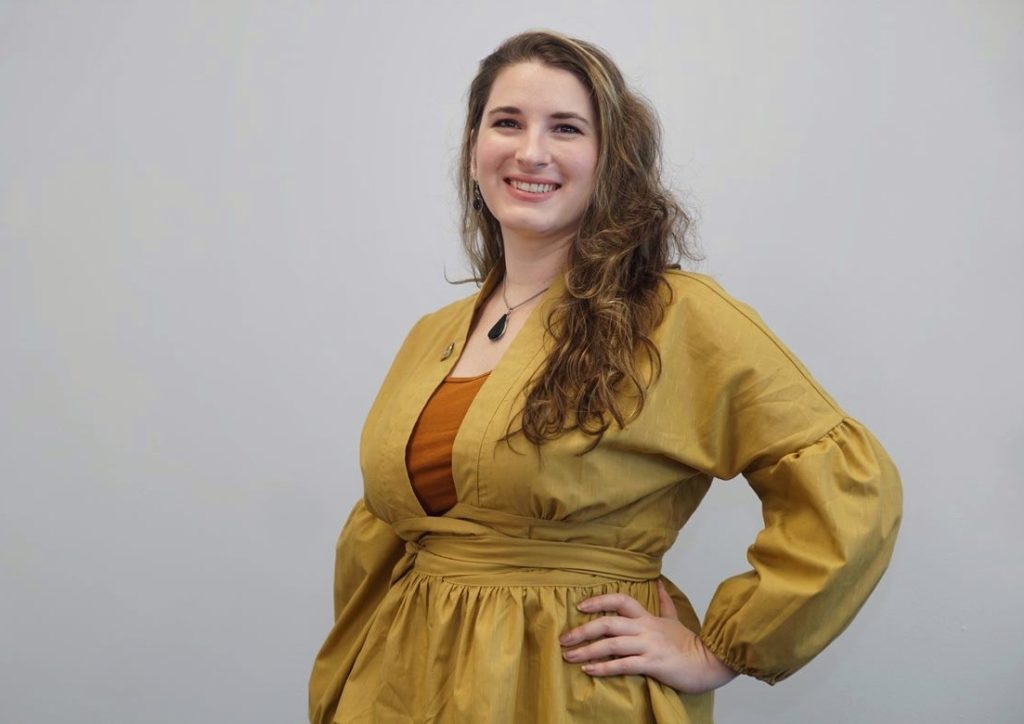
Shannon Kobran, Head of Education and Training, SDG Academy, UN Sustainable Development Solutions Network
Shannon has been with the SDG Academy since 2018, when she joined as an Education Manager in SDSN’s New York office. In 2021, she moved to Malaysia to establish an SDG Academy team based at Sunway University in Kuala Lumpur. Prior to joining SDSN, Shannon worked for a NYC-based nonprofit that promotes global citizenship through cultural exchange between international students and local communities. She has also worked with the UN Development Programme (UNDP), evaluating and revising the pilot of UNDP’s award-winning Leadership Development Pathway, an online training program aimed at improving the performance of UNDP managers worldwide. Before transitioning to the international development space, Shannon spent five years as an editor and project manager for a leading educational publishing house. She holds a Master’s degree in International Educational Development from Teachers College, Columbia University, where her research focused on the intersection of technology and intercultural education.
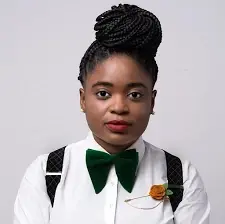
Adenike Akinsemolu, Founder and Director, The Green Institute
Adenike Akinsemolu is an Honorary Associate Professor at the University of Birmingham, a Senior Research Fellow at Afe Babalola University, a Visiting Professor at Wesley University, and the Director of the Green Institute, Nigeria. She is a leading expert in the field of environmental sustainability with over 10 years of experience in education and research.
Adenike is renowned for coining the term “Green Microbiology,” a groundbreaking field that explores the sustainable applications of microbes in environmental and industrial systems. Her contributions have shaped the discourse in this area, with published research and an upcoming book further solidifying her position as a pioneer.
She is also a National Geographic Educator and a member of the United Nations Sustainable Development Solutions Network. Adenike is committed to finding bold and effective solutions to complex challenges, including the fight against climate change. Her deep passion for promoting sustainable practices and solutions for organizations and communities is matched by her strong track record of success in developing and implementing innovative initiatives.
In addition to her work as an educator and researcher, Adenike is the author of several influential books on sustainability, including Principles of Green and Sustainability Science (Springer, 2020), Biological Science: A Concise Introduction(The Green Institute, 2022), and An Introduction to Green Education (National Geographic, 2022). She is always looking for opportunities to collaborate and share her knowledge and expertise with others who are committed to protecting the environment.
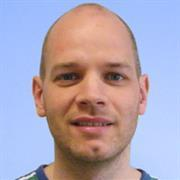
Enda Murphy Professor School of Architecture, Planning and Environmental Policy, University College Dublin
Enda is Professor of Planning at the School of Architecture, Planning and Environmental Policy where he has been programme Director for the Masters in Regional and Urban Planning (MRUP) since 2019. He is also a UCD academic lead for the Sustainability and Climate Committee of Una Europa. Between 2015-2018, he held the position of Vice-Principal for Graduate Studies and Director of the Graduate School for the College of Social Sciences and Law (CoSSL). Beyond the University, he is an active Editorial Board Member of PLOS ONE, one of the world’s leading science journals; he is also a current member of the UN SDSN SDG Academy High Level Advisory Council (HLAC) whose mission focuses on the international development of Education for Sustainable Development. His research interests are broad in scope but centre on the areas of urban transportation and spatial planning, environmental noise, neoliberalism/neoliberalisation, and the UN Sustainable Development Goals (SDGs). He has published widely in the international literature and is author/co-author of more than 100 academic journal papers, book chapters, conference papers and reports and is co-author of three books. Enda has held visiting professor positions at the University of Economics, Ho Chi Minh City, University of Hartford, USA, Cape Peninsula University of Technology, Cape Town, CRENoS, University of Cagliari, and at KTH Royal Institute of Technology, Stockholm. He is a former Fulbright Scholar.
